Annual Gift Tax Exclusion
The amount of money that one person can transfer to another during a calendar year without being required to file a gift tax return or reducing their unified credit for estate taxes.
Charitable Remainder Interest Trust
A trust in which donors transfer property to a charitable trust and receive an income stream from the transferred property for the trust’s length. Capital gains taxes avoided on the transferred property, and the donor receives a charitable income tax deduction.
Federal Estate Tax
A tax imposed by the federal government upon the estate of the deceased person. Specific exclusions and deductions are given, and then everything above a set amount is taxed.
Fiduciary
A person or organization that acts on behalf of another person or persons, putting their clients’ interest ahead of their own, with a duty to preserve good faith and trust.
Funding
The process of transferring title of your assets into a trust. This is known as funding a trust.
Generation-Skipping Tax
A tax levied on assets given to someone who is more than one generation away from the donor.
General Durable Power of Attorney
When you implement Power of Attorney, you are appointing someone else to act on your behalf for matters that do not concern medical decisions. This person is also known as your Agent or your Attorney-in-Fact. A General Durable Power of Attorney sets out the general (as opposed to medical) powers you are granting to your Agent and authorizes them to act even after you become incapacitated.
Guardianships/Conservatorships
A court-supervised proceeding to name an individual or entity to manage the affairs and assets of an incapacitated person. In incapacity planning, this is necessary where the person either did not execute a General Durable Power of Attorney prior to incapacity or when their General Durable Power of Attorney does grant sufficient powers to the Agent to accomplish the planning goals.
Irrevocable Life Insurance Trust
A trust created to own and control a term or permanent life insurance policy or policies while the insured is alive, as well as to manage and distribute the proceeds that are paid out upon the insured’s death. When properly drafted, an irrevocable life insurance trust can be used to shield life insurance cash value and proceeds from being included in the value of a decedent’s estate for estate tax purposes and Medicaid eligibility.
Joint Tenancy
A way for multiple owners to own an asset in a way that will permit the transfer of a decedent’s share to the other joint owners without probate.
Living Will
When you sign a Living Will, you tell your doctors your wishes about keeping you alive artificially in specific medical situations and you authorize your Health Care Agent to consent to those procedures necessary to carry out your wishes.
Personal Representative
The person or entity appointed in a Will to carry out the decedent’s wishes and follow the Probate process.
Pour-Over Will
A Pour-Over will is a Will that directs a decedent’s assets into a trust if those assets were not titled in the trust during the decedent’s lifetime.
Power of Attorney for Health
When you sign a Power of Attorney for Health, you appoint someone else to act on your behalf for medical matters. This person is known as your Health Care Agent.
Probate
Probate is a court procedure used to change a deceased person’s assets over to their beneficiaries. Creditors of the deceased may also file claims in the probate proceedings. If you pass away with no Will or estate plan, your estate will go through the probate process
Revocable Living Trust
A trust in which assets are titled (funded) which contains directions for the use of those assets during the lifetime of the trust maker and for the distribution of those assets upon the trust maker’s death. Assets held in trust transfer to beneficiaries privately and without probate.
Step-Up in Basis
An adjustment in the value originally paid for an asset based on that assets appreciated worth of the asset at the time of an owner’s death. Property for which someone pays $1,000 to purchase which is worth $10,000 when the owner dies will be “stepped up” to $10,000, eliminating $9,000 of gain that would otherwise be subject to capital gains tax.
Trustee
The person or entity that manages the assets in a trust.
Will
A legally enforceable declaration of how someone wishes their property to be distributed when they die and who they choose to carry out those wishes.

